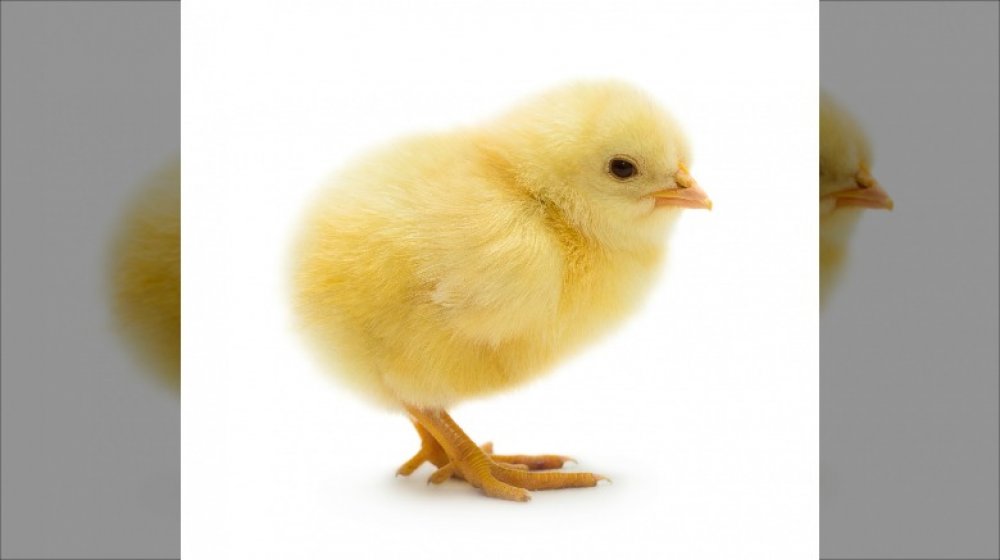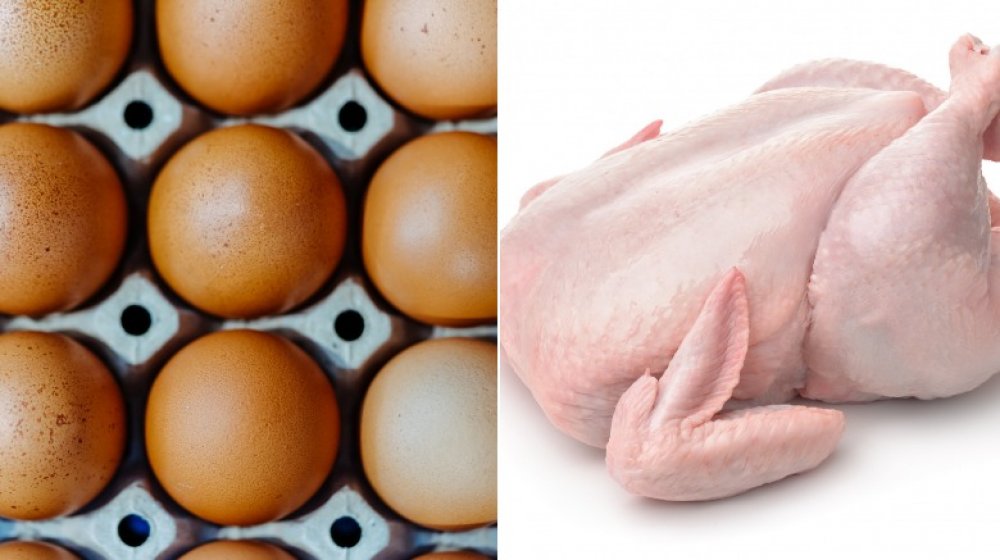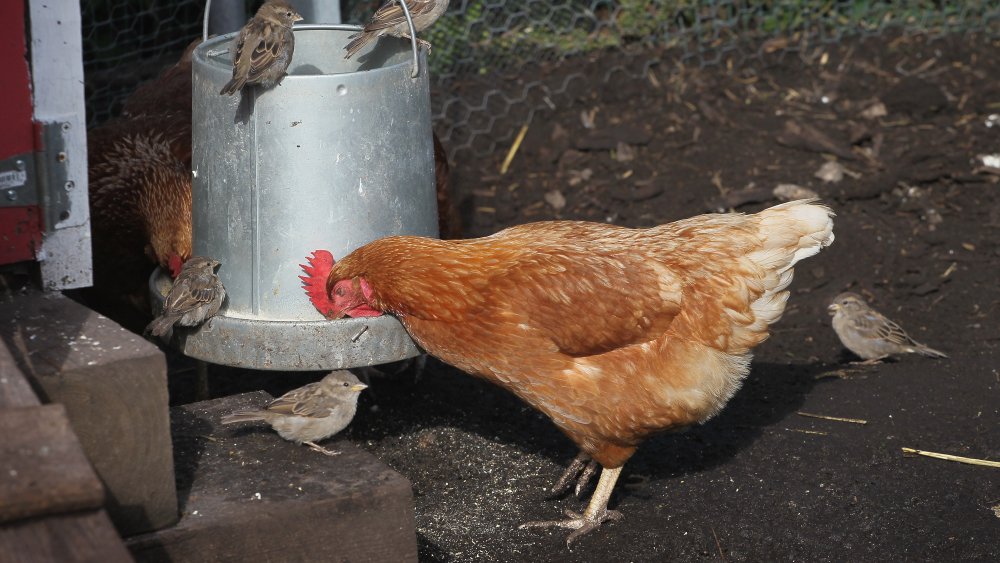The Real Reason People Are Panic-Buying Baby Chicks
Every Easter there are always some people who seem to feel it's cute to gift kids with live baby chicks — some of these even dyed pastel colors. This is never not a terrible idea, since most of the time all this present ever results in is the kids getting traumatized by witnessing firsthand the miracle of death... and things working out even worse for the chicks.
Even if you take the "kinder" approach of releasing your unwanted half-grown chicks in a local park or outdoor area, The Spruce points out that these chicks have zero experience at foraging for food or evading predators. As a result, they don't tend to last too long on their own — and no, they do not get adopted by families of ducks, a la Hans Christian Andersen.
Now, though, just in time for Easter 2020, there's a huge run on baby chicks at many farm supply stores that deal in livestock. Food & Wine reports that this has less to do with inappropriate gifting and more to do with coronavirus-induced panic buying.
People are looking to baby chicks for a sustainable food supply
The coronavirus epidemic may be the first experience most of us have with food being in short supply, and naturally, it's got us all in a bit of a tizzy. Some are stockpiling canned foods (and no longer laughing at doomsday preppers) while others are emulating the whole "back to the land" movement previously associated with '70s-era hippie communes and deciding to raise their own food.
While it's certainly understandable to want to take more control over your own food supply — and yes, it's upsetting seeing the supermarkets sold out of eggs and chicken and the insane price inflation on those items still in stock — raising backyard fowl is a far cry from planting a vegetable garden (which, by the way, also makes for a pretty cool, and far less risky, home school science project, if that's what you're looking for). For one thing, baby chicks aren't going to be productive for a good long while, since assuming the chicks even survive to become adult hens, they won't be laying for maybe six months. And if you've purchased them as meat birds, they've still got a lot of growing to do there, too — and are you quite sure you and your family are ready to kill, pluck, and gut your own meat without developing a sudden urge to go vegan?
Mid-pandemic may not be the best time to take up chicken farming
Would-be urban farmers may be unaware of the sheer volume of stuff — and space — those chicks will need as they grow. Chickens require both indoor and outdoor areas, which will need to be fenced in to keep them safe from neighborhood dogs and cats or from roaming foxes, coyotes, or raccoons. Just now, when many types of businesses are closed and the ones still open are experiencing shortages and shipping delays, it may be more difficult to access all of the supplies necessary for successful chicken-raising.
There's also the issue of salmonella. Chickens are dirty birds, and handling them requires constant hand washing and sanitizing to protect against infection — and aren't we already doing enough of that? Not to mention, it's a bad idea to increase your risk of contracting an infectious disease at a time when most hospital beds are needed for COVID-19 victims. Also, raising poultry in your yard may be against the law in your area, mostly for reasons of sanitation — and mid-pandemic is not the time to anger your local health department.
So baby chicks aren't going to be putting food on your table any time soon (if ever), and farming has always been an unpredictable enterprise. If you're frustrated about your limited food choices these days, though, it's time to take a tip from our Depression-era ancestors and learn to get creative with the food on hand.


